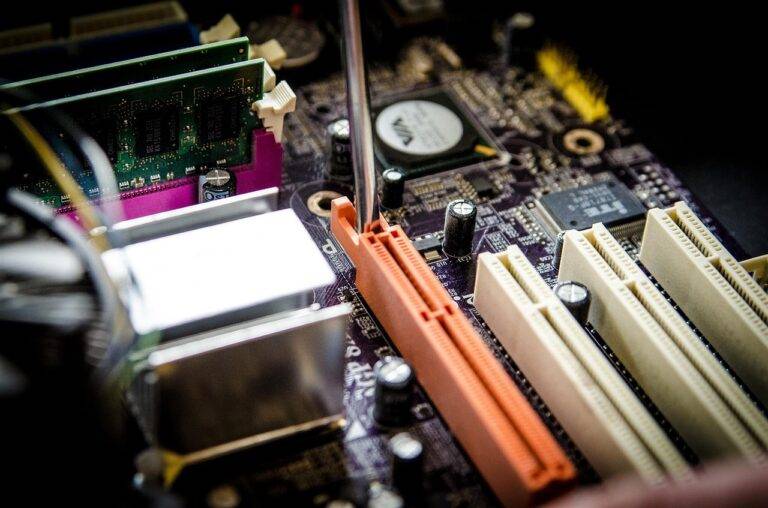Exploring the Applications of AI in Precision Agriculture and Crop Monitoring
Precision agriculture has greatly benefited from the integration of artificial intelligence (AI) technologies. By leveraging AI, farmers can analyze vast amounts of data collected from sensors, drones, and satellites to make informed decisions about crop management. AI algorithms can process this data rapidly, providing precise insights on crop health, soil conditions, and irrigation requirements. This enables farmers to optimize their resources effectively, leading to higher yields and cost savings.
Another key application of AI in precision agriculture is the development of predictive models for crop diseases and pests. By training AI algorithms with historical data on disease outbreaks and pest infestations, farmers can receive early warnings and recommendations for preventive measures. This proactive approach not only minimizes the impact of pests and diseases on crops but also reduces the need for excessive use of pesticides, promoting sustainable agricultural practices. As AI continues to advance, its role in precision agriculture is expected to further revolutionize the way farmers manage their crops and increase productivity.
Advantages of AI in Crop Monitoring
AI technology has revolutionized crop monitoring in agriculture, offering significant advantages to farmers and producers. By utilizing AI algorithms, farmers can access real-time data to monitor crop health, identify potential issues such as pests or diseases, and make informed decisions to optimize their yields. This precise monitoring enables proactive measures to be taken, ultimately leading to improved crop quality and quantity.
Furthermore, AI in crop monitoring allows for the efficient utilization of resources such as water, fertilizers, and pesticides. Through the analysis of data collected by drones or sensors, AI can provide valuable insights into the specific needs of each crop, enabling farmers to apply inputs selectively and in the right quantities. This targeted approach not only maximizes resource efficiency but also minimizes costs and environmental impact, contributing to sustainable agriculture practices.
Challenges of Implementing AI in Agriculture
AI technology has shown great potential in revolutionizing the field of agriculture, but its implementation comes with various challenges. One major obstacle is the initial cost of implementing AI systems on farms. The high upfront investment required for purchasing and setting up AI technology can be prohibitive for many farmers, especially those with small or medium-sized operations. Additionally, ongoing maintenance and updates further add to the financial burden, making it difficult for some farmers to adopt AI solutions.
Another challenge in implementing AI in agriculture is the lack of technical expertise among farmers. Understanding and effectively utilizing AI technology requires a certain level of technical proficiency, which many farmers may not possess. This skills gap can impede the successful integration of AI systems into existing farm operations, limiting the benefits that these technologies can offer. Providing training and support to farmers to help them navigate and make the most of AI technology is crucial for overcoming this challenge and ensuring the widespread adoption of AI in agriculture.
What are some common applications of AI in precision agriculture?
Some common applications of AI in precision agriculture include crop monitoring, pest detection, automated irrigation systems, and yield prediction.
What are the advantages of using AI in crop monitoring?
AI can help farmers monitor crops more efficiently by analyzing data from sensors and drones, detecting early signs of disease or nutrient deficiencies, and providing real-time insights for better decision-making.
What are some challenges of implementing AI in agriculture?
Some challenges of implementing AI in agriculture include high initial costs, limited access to technology in rural areas, data privacy concerns, and the need for specialized training for farmers to use AI tools effectively.
How can farmers overcome the challenges of implementing AI in agriculture?
Farmers can overcome the challenges of implementing AI in agriculture by investing in affordable AI solutions, partnering with tech companies for training and support, and collaborating with other farmers to share knowledge and resources.





